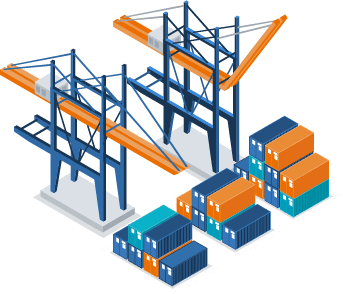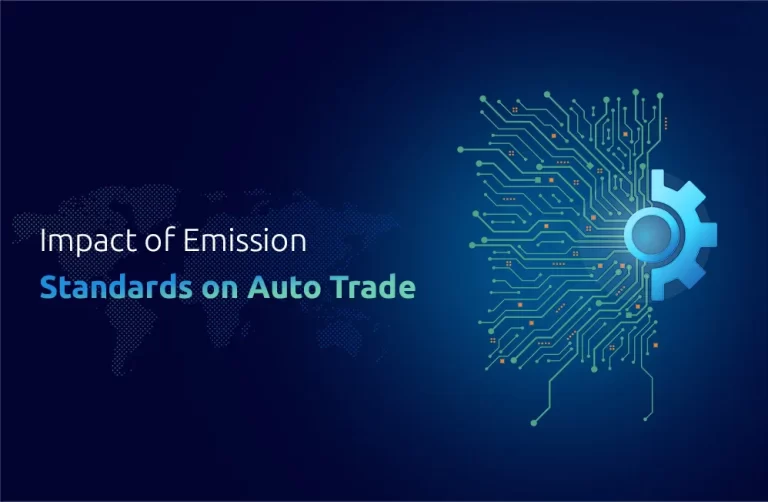Facilitating Consistent IOR in Hungary’s Primary Industries
When importing IT, medical, and telecom equipment into Hungary, it is crucial to recognize that various sectors have different shipping requirements. Here are some considerations to keep in mind.
Technology Industry
Importing IT and telecom equipment into Hungary involves understanding local regulations and obtaining the necessary certifications. The proficiency of the Importer of Record (IOR) is critical for the timely delivery of IT and telecom equipment. Businesses must navigate Hungary’s complex regulatory environment, which includes adhering to local regulations, obtaining required certifications, ensuring product safety, and managing taxes and customs. Additionally, compliance with trade legislation and international standards is essential to ensure a smooth import process.
Here are the most imported equipment in Tech Industries of Hungary
Computer and Servers: In any IT environment types of equipment such as computers, and servers are essential for processing and storing data.
Networking hardware: Reliable IT networks must be built and maintained by using switches, routers, and firewalls.
Telecommunications equipment: Equipment for mobile and fixed-line networks is included in the category of telecommunications equipment, which is essential for Hungary’s expanding digital infrastructure.
Heathcare Industry
Sending medical equipment to the healthcare sector in Hungary, the items must be packaged and labeled correctly to conform to standards in the industry. High-quality medical equipment is essential for providing excellent patient care in Hungary.
If you can satisfy the regulations set out by the government of Hungary, importing medical equipment will be a breeze. One Union Solutions knows all these regulations and can deliver your medical equipment.
Some of the most imported equipment in the Medical Industries of Hungary
Modern medical equipment and technology include advanced imaging tools like CT and MRI scanners, which enable accurate diagnosis. Equipment for minimally invasive surgery (MIS) facilitates procedures requiring fewer incisions and quicker recovery times. Advanced cancer screening depends on early illness identification, which is made possible by diagnostic instruments.
Automotive Industry
The automotive industry in Hungary also faces some challenges related to importing automotive products but with the help of One Union Solutions, you can easily solve your issues and get trustworthy IOR services. We offer efficient services to streamline the process. We also handle tax and duty payments and customs clearance so that you can relax.
The Most Common Imported Automotive Equipment:
Pressing and Stamping Equipment: Pressed metal parts are used extensively in the production of automobile bodywork and other components by Hungary’s leading automakers, including Mercedes and Audi.
Robotic Welding Systems: Since automation is essential to the production of cars robotic welding equipment is also highly imported.
Engine assembly lines and testing equipment: These are essential imports for automakers because Hungary doesn’t produce many engines on its own.
Aviation Industry
IT and telecommunications equipment are in higher demand due to the booming Hungarian aviation sector. Customers in this sector may rest easy knowing that they comply with the rules and regulations set out by the Hungary Civil Aviation Authority (NCAA) and others with the help of IOR services. Our assistance with customers’ customs procedures, certification needs, and tax and duty payments makes goods imports simple. We also ensure that our customers’ handling of critical aviation equipment is up to NCAA requirements for safety and security. The equipment must be packaged and labeled correctly by aviation industry standards.
Hungary’s aviation industry heavily relies on imported equipment. Due to the lack of domestic production, they primarily import aircraft themselves, along with crucial components like engines (often from manufacturers like GE) and avionics (navigation and communication systems). This ensures their fleet stays up-to-date with the latest technology for safety and efficiency.
Navigating Around Hungary’s Ports, Highways, and Free Zones for Trade
While being a landlocked country, Hungary is an important hub for trade in Central Europe because of its vast network of rivers, roads, and advantageous access to nearby ports.
Ports: Although Hungary does not have any seaports of its own, it uses the ports of Constanta, Romania, and Rijeka, Croatia, for maritime freight operations. These ports which are located on the Adriatic and Black Seas respectively offer Hungary’s foreign trade vital entry points. The Danube River, which passes through Hungary and links it to interior waterway transportation networks that connect it to important European waters like the North Sea and the Black Sea, is another resource that Hungary benefits from.
Import/Export Data: Automobiles, medical and healthcare equipment are among Hungary’s major exports. The country has a strong trade profile. On the other hand, the nation imports consumer items, aviation equipment, and IT equipment, demonstrating a diverse trade portfolio that satisfies its industrial and consumer needs.
Roads: Hungary has an extensive network of highways and roadways that make it easy to move around the nation and into its neighbors. Important routes are the M7 highway, which connects Hungary and Slovenia, and the M1 motorway which connects Budapest and Vienna. By linking Hungary to important commercial routes throughout Europe, these roads play a crucial role in commerce and improve logistical effectiveness.
Free Trade Zones: Hungary is home to several well-located Free Trade Zones (FTZs) that provide businesses operating there with enticing tax breaks and customs advantages. These zones improve accessibility and logistical convenience for international commercial activities since they are located close to important transportation hubs. They draw in international investment, supporting economic expansion and increasing Hungary’s position as a hub for regional trade.
DO YOU KNOW
“Most imported items in Hungary are subject to the usual 27% VAT rate; however, businesses who operate within Free Trade Zones might benefit from enticing tax incentives.”
“If proper documentation must be submitted and customs processes followed, the average customs tax rate in Hungary is under 1%.
”








